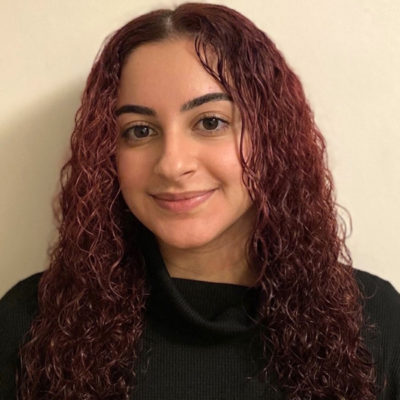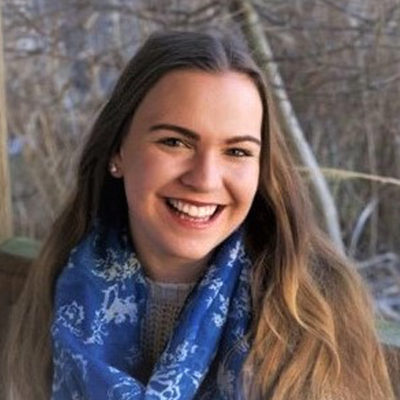Liam Michaud
Liam Michaud is a PhD candidate in Socio-Legal Studies at York University and is supervised by Dr Eric Mykhalovskiy. He holds a Joseph-Armand Bombardier Canada Graduate Scholarship. Informed by critical legal studies and policy studies and drawing on ethnographic and community-based participatory methods, his research examines the tensions and convergences between medico-therapeutic and criminal-legal approaches in drug policy, as well as the place and role of people involved in the drug trade in law reform. He has published work on the barriers to health and healthcare posed by the legal environment in Policing & Society, Contemporary Drug Problems, and Surveillance & Society. He has conducted research and written on topics including prison-based needle exchange, surveillance practices in healthcare settings, experiences of police discretion and drug law enforcement at overdose events and is currently focusing on a project on overdose-related manslaughter prosecutions. He brings 15 years’ experience working in community-based healthcare settings with people in conflict with law.

Liam Michaud

Alanah Broomfield
Alanah Broomfield
Alanah Broomfield has an H.B.A in French Studies with a certification in Law and Social Thought, a M.A in Socio-Legal Studies, and is currently a doctoral student in Socio-Legal Studies at York University. She is a teaching assistant in the Social Science department and works with the Jean Augstine Chair in Diaspora, Culture and Community as a research assistant. She is committed to using legal pluralistic perspectives and neoliberalism to better understand the perpetuation of racial inequities within institutions. My previous research focused on the racial capitalism of Black male student-athletes in the United States and challenging the National Collegiate Athletic Association’s (NCAA) bylaws and business and compensation model. Her current research explores the racialized impacts of surveillance at the 2024 Olympics Games in Paris, France and how mega-events deepen racialization with new technologies such as AI.
Project: Racialized Impacts of Surveillance at the 2024 Paris Olympics
Following the 9/11 attacks, all Olympic Games and massive sporting events have implemented extensive surveillance systems, viewing them as an investment in future security (Samatas, 2011). When France was chosen to host the 2024 Olympic and Paralympics Games, the International Olympic Committee (IOC) demanded that a precautionary anti-terrorist policy be put in place. In response, in Spring 2023, the French Parliament granted approval to a divisive surveillance bill that sanctions the use of experimental artificial intelligence (AI) video surveillance for security purposes, including to track movement and events at the forthcoming 2024 Olympics and Paralympics in Paris. This heightened surveillance strategy is the first of its kind in France and human rights organizations anticipate violations of privacy and human rights (Amnesty, 2023). This project will explore the ways in which new surveillance measures deepen racialization of Blacks in France. In doing so, this research will draw on and contribute to literature in surveillance, critical race theory and AI. Through critical legal and policy analysis supplemented by ethnographic research, it will examine racialized impacts of the Paris 2024 Olympics surveillance of Black Parisians.
Roberta Medina
My research focuses on the transformative effects of drones' "vertical vision" in policing within distinct urban contexts in Brazil and Canada, while critically examining their surveillance impact on monitored populations. Originally used in military settings, drones now play a pivotal role in the "new visibility" strategies of urban law enforcement, alongside body-worn and closed-circuit cameras. As a researcher rooted in law, critical criminology studies, and political philosophy, I am particularly interested in the context of global south surveillance. Through a comparative approach, I aim to understand how drone use in policing influences power dynamics, social control, and privacy rights in diverse urban settings.

Roberta Medina

Chika Maduakolam
Chika Maduakolam
My proposed research aims to understand the process and impacts of conflict-related Sexual and Gender-Based Violence (SGBV) through the experiences of young men. I am interested in the analysis of the crime of SGBV in conflict-affected regions, exploring both the limitations and potential of international law to address SGBV.
My research contribution is to investigate the patterns of violence that are perpetuated when men’s experiences are excluded from both domestic and international policies. My work will provide a vital reference for policy development on access to reporting and redress mechanisms for male victims of SGBV in contemporary conflict. With a focus on the construction of gender roles, building on discourse from social constructionist theory and postcolonial theory, my research will consider specific influences on societal understanding of male sexual violence; exploring the implications of associating masculinity with strength, protection, and invulnerability, and how postcolonial representations of violence and masculinity in the Global South are rooted within the international law framework on gender.
Ava Mahmood Pour Tehrani
My research focuses on how parole requirements impact the quality of life for parolees in Ontario through a critical human rights assessment. The research aims to uncover how the restrictions of fundamental human rights on parolees, via their institutionally imposed conditions, have hindered the quality of life of those who are attempting to reenter society and detail how this has incentivized reoffending. This research is a product of my personal experience in the parole field and my personal experience will be detailed throughout the paper. Through a criminological, human rights, and sociological lens, the research will uncover literature on the politics of parole, the pains of the criminal justice system, and instances of the processes of recidivism, to critique the parole system’s mandate and its inability to counter desistence in a rehabilitative manner. These theoretical analyses will be supplemented with literature on critical human rights and quality of life to detail the importance of including human rights logic in the rehabilitation process. A cross-examination of The Canadian Charter of Human Rights and Freedoms of 1981 with the Corrections and Conditional Release Act of 1992 will be included within the research to further situate the literature and place the current parole mandate within the Charter’s purview to detail gaps in the reintegration process through the scope of quality of life and critical human rights. The work of supervisor Dr. Livy Visano and reader Dr. Amanda Glasbeek will aid in structuring the proposed research and grounding it within the socio-legal studies framework.

Ava Mahmood Pour Tehrani

Kayla Forjan
Kayla Forjan
I am interested in investigating the ways in which specific policies, practices, and legislations justify and exacerbate the hyper-surveillance of those designated as disabled in Ontario and the related rationale that enables the perpetuation of systems of social control. As such, I am focusing my doctoral research on The Ontario Disability Support Program (ODSP) and the experience of ODSP recipients attempting to navigate the bureaucratic regulations in place intended to safeguard asset eligibility. Combining my knowledge of surveillance studies with my research of disability literature, I propose to employ a mixed-method research methodology involving legal analysis, focus groups, and/or semi-structured interviews related to the ways in which disabled ODSP recipients experience surveillance.
Claire Linley
Canada has one of the most robust immigration detention systems in the world controlled and protected by official legislation and multi-layered policy directives. As such, Canada's immigration detention system has seen a variety of reforms over the past two decades. Most notably, the National Immigration Detention Framework, implemented in 2016 introduced the Alternatives to Immigration Detention Program controlled by the Canada Border Services Agency (CBSA). The program seeks to create more accessible and additional alternatives to detention (ATDs) such as conditional plans of release from detention facilities for immigrant detainees, however, such alternatives use tactics of increased surveillance and control. The purpose of my research is to examine: to what extent does the Canada Border Services Agency's Alternatives to the immigration detention program function to facilitate the deportation of immigration detainees? Specifically examining the following questions: (1) the implementation and operation of the Alternative to Immigration Detention Program (ATIDP), (2) whether the central role of the CBSA undermines the authority of the Immigration and Refugee Board, and lastly, (3) what impact the program has on the lives of immigrants enrolled in the program. This research will serve to fill an existing knowledge gap pertaining to Alternatives to Immigration Detention in Canada. It is my hope that the production of this research will be used to justify a public review of the Alternatives to Immigration Detention Program and inform future recommendations and improvements of the program.

Claire Linley
Arunita Das
My doctoral research examines the way Canadian far-right women use social media to spread hate and gain female supporters. Far-right extremists and alt-right movements promote a version of nationalism that is rooted in xenophobia and “white power,” and is predicated on spreading hate and misinformation, declaring perceived threats posed by groups such as IBPOC communities, immigrants, 2SLGBTQ+ communities, and feminists (Perry & Scrivens, 2016, as cited in Scrivens & Amarasingam, 2020). Largely, the media coverage and literature around far-right extremist groups in Canada focus predominantly on male figures. However, despite there being growing scholarship in the area of far-right extremism, and fascism in Canada, the relevance of women within far-right movements remains understated and under-researched in Canada.
There are a large number of Canadian women who associate with far-right extremism and post their views online. Thus, I look at the social media lives of female far-right influencers based in Canada, to examine the ways they spread their views and recruit far-right female supporters. I argue that uniquely, such women cultivate warm, relatable personalities within mainstream social media platforms, to reach new followers and spread hate. Exploring the differences, patterns, and nuances of the online posts by far-right women illuminates their varying ideologies, inspirations, and audience, and the ways women become associated with extremist ideologies. In addition, I examine the challenges and possibilities for the legal regulation of online far-right extremism and hate speech in Canada, in ways that balance constitutional protections concerning freedom of expression.
Beheshta Sharifi
My interest in Socio-Legal Studies is fuelled by broad questions about the role of the state in identity formation, modalities of citizenship, and the state of exception. I am particularly interested in how contemporary forms of algorithmic techniques of governance, and predominantly biometrics, are shifting the quest for state security. Specifically, my research investigates the role played by the Canadian state in relation to the rapid proliferation of biometric practices and the purported security imperatives therein as they affect Muslim communities. I interrogate biometric practices that subject human bodies to processes of securitization. I consider how life becomes commodified and thus measurable through the design and deployment of biometric security. I investigate the modalities in which race becomes the object of governmental regimes and the infringements of such interventions on the rights of Muslim populations. Moreover, I examine the ways in which biometric security measures are utilized in the areas of counterterrorism and counterinsurgency policies of the present day. I approach these queries through empirical research as well as critical social theory on security studies.

Learn More
The Graduate Program in Socio-Legal Studies at York is an exciting environment to pursue innovative, socially engaging, career-ready education. Contact our Graduate Program Assistant to learn more.
